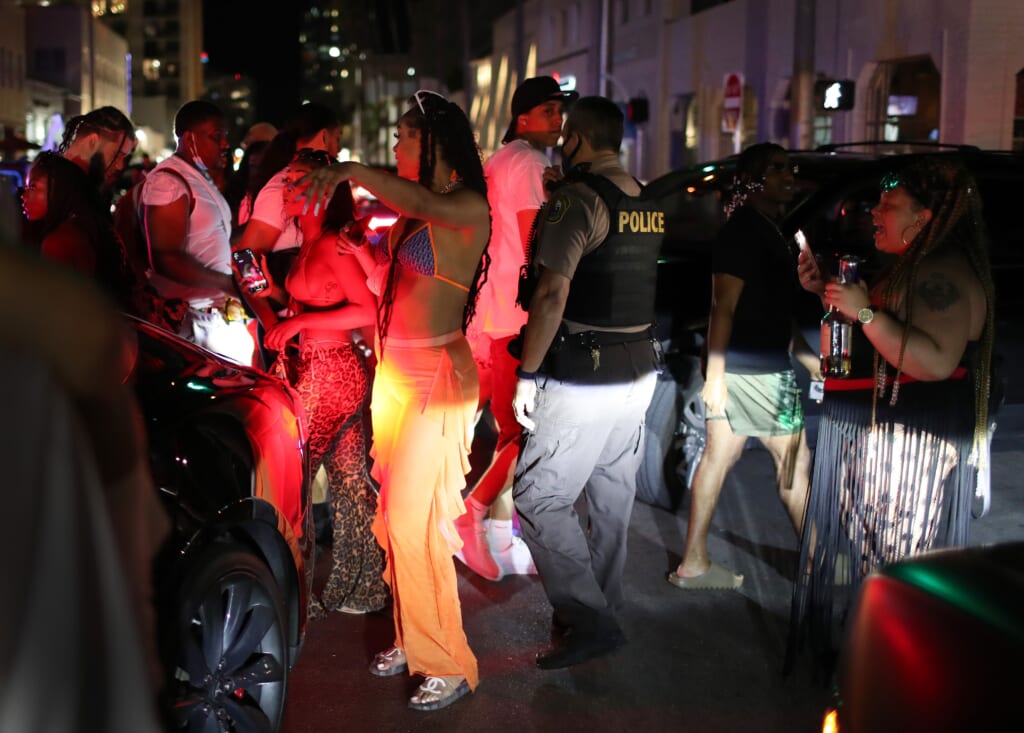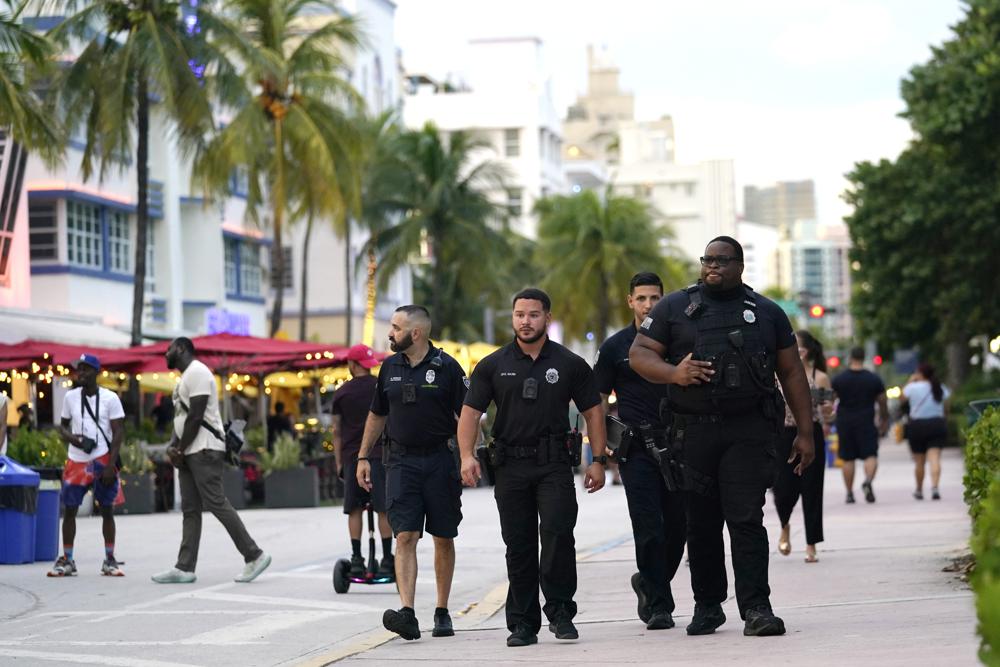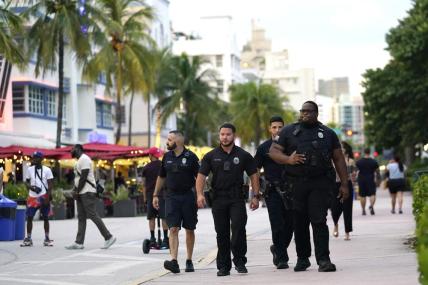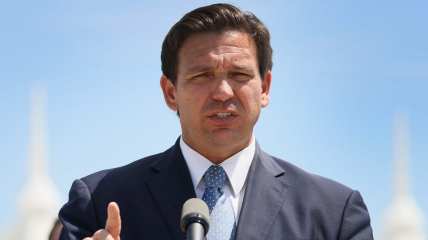Miami leaders condemn spring break curfew as overreaction to large, Black crowds
Once again, restrictions are being unequally placed on Black spring breakers strictly because of their race
Despite being a spring break destination for more than two decades, Miami Beach continues to have issues managing visiting crowds—which are made up of mostly Black youth.
However, a recent decision to order a state of emergency in the waterfront community is drawing criticism from local leaders.
“The only emergency is that Black people are on the Beach,” Stephen Hunter Johnson, a member of Miami-Dade’s Black Advisory Board, told the Miami Herald.
“I don’t understand how this town has been doing spring break for at least 25 years and can’t figure it out.”

Miami Beach uses the standard of “clear and present danger of a riot or other general public disorder,” to decide to issue a state of emergency. It has most recently been utilized during the coronavirus pandemic and the collapse of the apartment tower in Surfside.
However, two shootings that injured five people are prompting the order during this year’s gathering which has been marked by largely peaceful crowds.
The order will mean a curfew of midnight to 6 a.m. curfew for areas between South Pointe Drive and 23rd Street, as well as roadblocks keeping people out of some residential neighborhoods. It has yet to be signed by City Manager Alina Hudak.
After continued criticism, Miami Beach launched a plan to take a “softer approach” to policing during spring break. They hired social media influencers and sponsored concerts.

“We decided this year we wanted to welcome visitors to Miami Beach rather than have too much of an authoritative or dictatorial tone,” Matt Kenny, the city’s assistant director of marketing and communications, told the Herald in January. “We wanted to welcome them first and foremost to Miami Beach, make them feel welcome in our community while promoting local offerings and reminding them of our regulations to enjoy the city safely.”
Many were encouraged and said that the plan seemed to be working, however, the shootings have ended much of that goodwill. “It’s an absolute overreaction,” Melba Pearson, a civil rights attorney and member of the Miami Beach Black Affairs Advisory Committee, said. “Not to trivialize people being harmed or shot, but you have to have a balanced approach to issues of criminal justice and law enforcement.”
Other critics are concerned about the optics of SWAT teams breaking up crowds of Black partygoers.
In addition to the shootings, there have been several incidents of officers riding in golf carts being injured—none seriously.
TheGrio is now on your TV via Apple TV, Amazon Fire, Roku, and Android TV. Also, please download theGrio mobile apps today!


